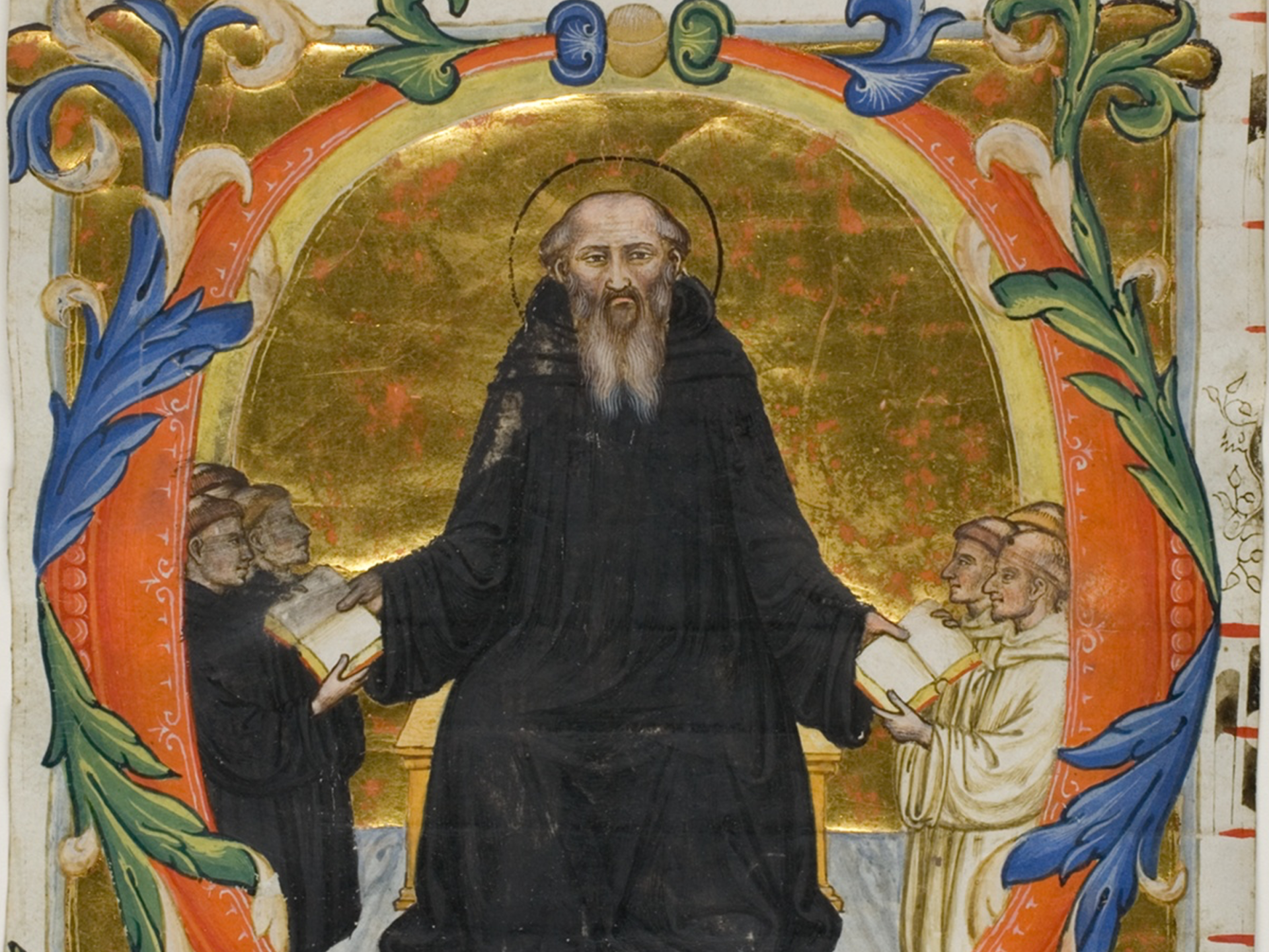Message of Abbot Paul - Sunday 11th July
Message from Fr Paul for Sunday, 11th July 2021
You will be surprised to see that we are not keeping the feast of St Benedict today, as it falls on a Sunday. However, I’m sure that we will all be thinking about him and asking for his prayers and blessing. Although football originated in the ball games played in monasteries in the Middle Ages, we won’t ask him which team he’ll be supporting this evening. Obviously, as a good Italian, he only has one option!
Today’s Gospel reading from Mark, (Mk 6: 7-13), is rather short, but if you follow these messages every day, then you can compare it with Matthew chapter 10, that we are reading at the moment. “Jesus made a tour round the villages, teaching. Then he summoned the Twelve and began to send them out in pairs giving them authority over the unclean spirits.” To begin with, it was Jesus who taught and performed miracles, the disciples following him around, but there comes a moment when he begins to share his mission of preaching and healing. It’s connected with his choice of twelve of his disciples to be apostles. In the Gospels we don’t find much information about this wider mission, but in the Acts of the Apostles and St Paul’s letters and in subsequent generations, we see Jesus’ plan bearing abundant fruit. Before they set out on their mission, he instructs them on the practicalities of how it should be done. “And he instructed them to take nothing for the journey except a staff – no bread, no haversack, no coppers for their purses. They were to wear sandals but, he added, ‘Do not take a spare tunic.’” This all seems rather radical and unrealistic, but Jesus doesn’t want them to be over self-reliant. They must trust in Divine Providence. All they were allowed to take along was a staff, a tunic and sandals. Just think of St Francis of Assisi, not of a Benedictine monk! Was Jesus taken literally? Reading the rest of the New Testament, it rather looks like it, at least at the beginning. It was probably the safest way to travel, and remains so in many countries today. Thieves can’t steal what you don’t have. Where are they to stay? His instructions are clear. “If you enter a house anywhere, stay there until you leave the district. And if any place does not welcome you and people refuse to listen to you, as you walk away shake off the dust from under your feet as a sign to them.” Hospitality and the welcoming of strangers were important aspects of life in the ancient world, especially among the Jews. I remember it being exactly the same when I was a student in Greece in the 60s. The Greeks call it φιλοξενία (love of the stranger or foreigner). They were to rely on the generosity and charity of their hosts, but were they not welcome, they should leave immediately.
“So, they set off to preach repentance; and they cast out many devils, and anointed many sick people with oil and cured them”. The message they preached was repentance, the need all people have to return to God and seek his forgiveness and the grace to live faithfully as his children. The reference to anointing with oil is interesting, as Jesus usually healed by touch or contact. One thing is certain: the apostles would not have done anything unless it was sanctioned by Jesus. We know that in the ancient world, and even today, olive oil was known for its healing powers. Gradually, the Church would bless oil to accompany prayers for consecrating, healing and driving out original sin, a blessing that takes place on Maundy Thursday or thereabouts. Let us ask the Lord today for the healing of our own minds and bodies and for all those in need of healing. May the Lord look on each one of us with mercy and compassion. Amen.










